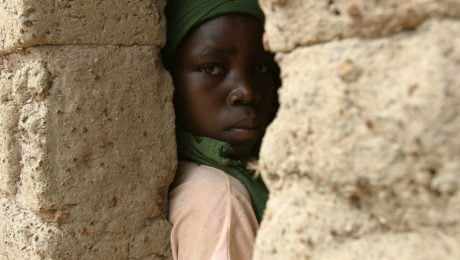Keyword: Education

Diplomatic Row over Gulen Influence in Africa
Turkey’s relations with African countries have been strained following demands by the Turkish government to close Gulenist schools in Sudan, Nigeria, and Somalia. After the attempted coup in Turkey on July 15, which the Turkish government has accused Gulen of masterminding, Turkey’s ambassador to Nigeria called for 17 Gulenist schools in the country to be closed.

Nigerian federal gov’t on arrested students: Turkey on a vendetta mission
The Permanent Secretary, Federal Ministry of Foreign Affairs, Ambassador Sola Enikanolaye, has said that the Nigerian students who were arrested in Turkey for an alleged role in the July coup attempt in Turkey may have been paying for the refusal of the Nigerian government to shut down some Turkish schools and institutions in Nigeria.

Islamabad High Court: No plan to close Pak-Turk schools
The government is not going to shut down Pak-Turk schools nor it has received any request from the Turkish government for the transfer of its management to any third party. This was stated by the Ministry of Foreign Affairs in written comments submitted to the Islamabad High Court (IHC) in response to a petition filed by the management of the Pak-Turk schools.

Turkish govt has declared war on us, Nigerian student cries out from hiding
Nigerian students in Turkey are in hiding following the government’s crackdown on them. “We are scared of leaving our rooms for fear of being arrested and charged with terrorism, or deported. Most of us are in our final year. What do we do?” students said.

Turkish govt begins massive deportation of Nigerian students
The Turkish government is in a drive to deport all Nigerian students at universities linked to Fethullah Gulen’s Hizmet movement. Gulen is an Islamic cleric whom President Erdogan of Turkey considers as his strongest rival. After the botched July 15 coup, Erdogan launched a massive crackdown on the investments of Gulen’s followers. He blamed Gulen for the coup, but he has denied the allegation.

I came to Nigeria with just a piece of luggage –Turkish International Colleges foundation coordinator
When Behlul Basaran arrived Nigeria in 2000 from Turkey, he was armed with a single piece of luggage, an enthusiastic spirit and hope. Inside his luggage was his letter of scholarship for a university education from the Hizmet Movement, which had started building a relationship and foundation for quality education with Nigeria.

The Turkish Connection: Pak-Turk Schools
The network of [Pak-Turk] of schools came under the media scanner last month, after the Turkish government demanded that Pakistan close down the entire network following the failed army coup to overthrow Turkish President Erdogan. Since then, Erdogan has ordered a ruthless purge and arrest of anyone even suspected of having links with his political rival, Fethullah Gülen, whom Erdogan holds responsible for the coup attempt.

CHP leader says Erdoğan’s UN speech only served to promote Gülen movement
Republican People’s Party (CHP) leader Kemal Kılıçdaroğlu has criticized a speech delivered by Turkish President Recep Tayyip Erdoğan at a UN meeting on Tuesday in which he called on world leaders to take measures against the faith-based Gülen movement, saying that Erdoğan’s speech only served to promote the Gülen movement.

Turkish school threatens students who refuse to write poems on coup attempt
The Education Ministry distributed “Attempt to invade Turkey with coup” brochures at all state schools across Turkey. Some 19 million students also watched a video of President Recep Tayyip Erdoğan reciting the Turkish national anthem along with footage from the night of July 15, when an abortive coup took place in Turkey.

Turkey’s Erdogan Is Already Making the Most of His ‘Gift From Heaven’ After Coup Attempt
Erdogan is establishing the regime he wants even if the constitution is not amended, a regime that ensures complete loyalty, whether out of support for him or out of fear he is instilling in tens of thousands of government officials, hundreds of thousands of teachers, thousands of judges and prosecutors and army officers. The shakeup in the education system is perhaps the most significant, even more than in the justice system or the army.

Turkey overshadows war-hit Syria in number of academics seeking asylum elsewhere
The New York-based Scholar Rescue Fund, a part of the Institute of International Education (IIE) has received an unprecedented number of requests for help, its director Sarah Willcox told an audience at the European Association for International Education’s annual conference, held in Liverpool from 13 to 16 September, Times Higher Education (THE) reported.





















